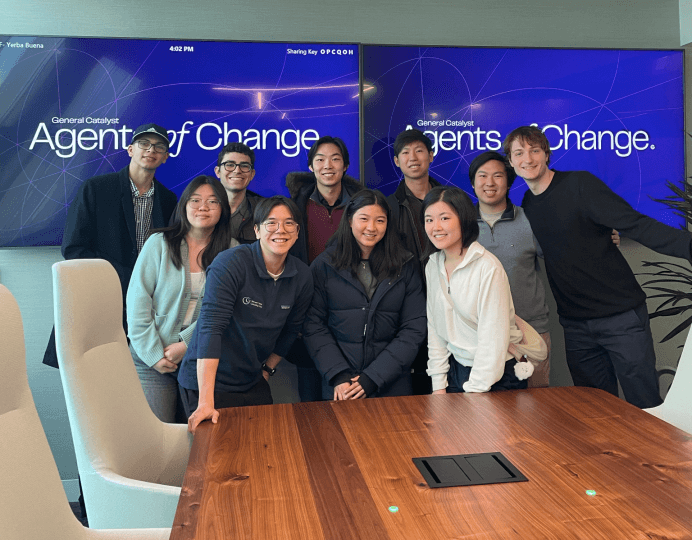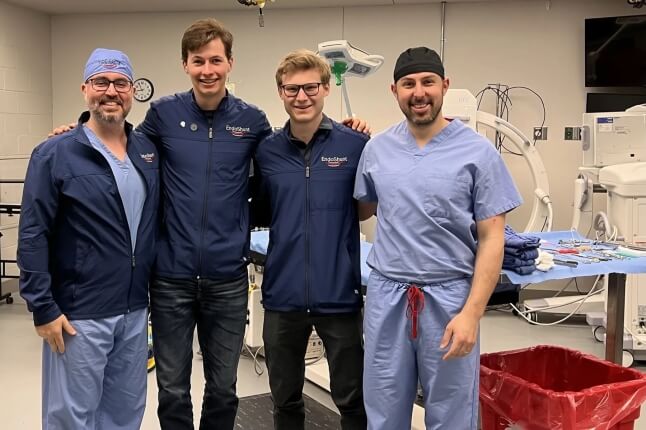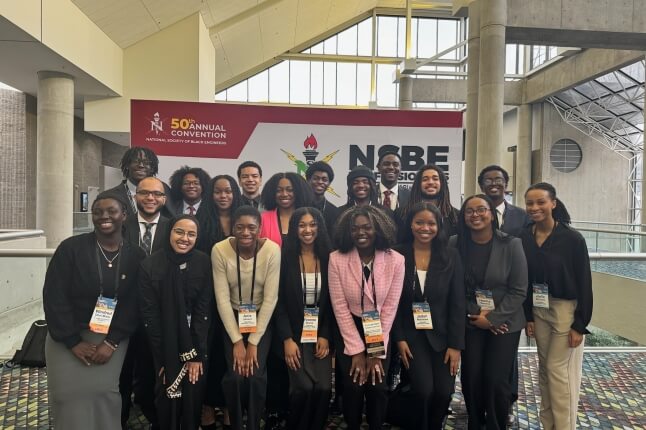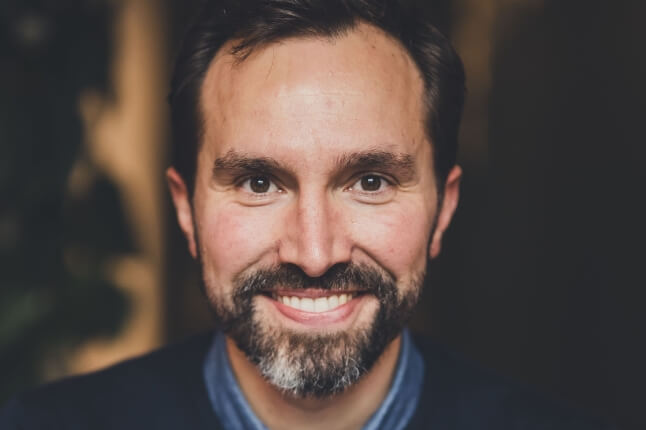News
Fourteen members of the Harvard Computer Society's Artificial Intelligence Group spent their spring break meeting researchers, engineers and other employees working at some of the biggest AI companies in the U.S.
A new student organization within the Harvard Computer Society is diving deep into artificial intelligence (AI) research. Formed just over a year ago, the HCS AI Group looks at AI from a broad range of perspectives and impacts, designating smaller groups to research specific AI-related topics which are then presented to the larger group.
“This semester we had one group on interpretability, and we had one on climate, sustainability and energy,” said Erik Wang, a third-year student studying physics with a concurrent master’s degree in applied math at the Harvard John A. Paulson School of Engineering and Applied Sciences (SEAS). “We have a lot of incredible faculty at Harvard working on really interesting projects at the cutting edge of AI, and Harvard’s AI research is very interdisciplinary, which is something we try to focus on as well.”
As one of the club’s directors, Wang was one of 14 students who recently got a first-hand look at the AI technology industry. The club subsidized a spring break trip to San Francisco to meet with researchers, engineers and other employees working at some of the biggest AI companies in the U.S.
“In the fall we were looking to invite speakers from these companies, but we found it really hard to get anyone to say yes, just because we didn’t have the resources to fly them from California to Boston for a one-day talk,” Wang said. “We realized it would make sense to take a small group during a school break to visit these companies in person. It would reduce the barrier for them to say yes, and would also be a really cool opportunity to see and talk to more of the engineers at these companies.”
The trip began with visits to OpenAI and Anthropic, two of the leading companies in large language models research. OpenAI’s ChatGPT is perhaps the most well-known large language model platform.
“Our first visit to OpenAI was the most interesting for me. We got to speak with a Harvard grad and current research scientist who works on an area of research that I’m very interested in, which is the theoretical framework of machine learning,” Wang said. “We also spoke with their head of start-ups. It was really cool to get a glimpse into how they look at partnering with smaller companies to expand the use of their technology in business.”
The trip also included a visit to Robust Intelligence, founded by former SEAS computer science professor Yaron Singer and computer science concentrator Kojin Oshiba, A.B. ‘18. On the second day, club members met with SoftBank and General Catalyst, two venture capital firms focused on investment in AI companies.
“Robust Intelligence set up a great presentation for us,” Wang said. “They had four or five engineers along with their co-founder talking with us. I was just speaking with someone at the Mignone Center for Career Success here, and they said one student who went on the trip potentially found a new career path just by getting to ask questions about the work that the engineers were doing.”
The club currently has 40-50 active members at its events, with a mailing list in the hundreds. Wang said the club plans to offer the trip again next spring.
“We sent out an application form the week before we left,” he said. “We asked about why they wanted to go on the trip, their academic background, and the specific areas of AI in which they were interested. We selected a small group based on those responses. We definitely tried to select a group that reflected the breadth of expertise and focuses of the companies we went to.”
All four club directors are either concentrating in or planning to concentrate in SEAS disciplines. The Harvard Computer Society is a SEAS-affiliated student organization.
Topics: AI / Machine Learning, Computer Science, Student Organizations
Cutting-edge science delivered direct to your inbox.
Join the Harvard SEAS mailing list.
Press Contact
Matt Goisman | mgoisman@g.harvard.edu



